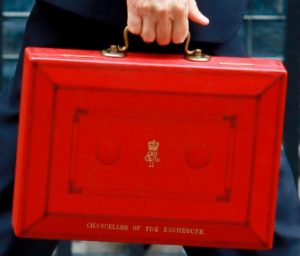 After a year “that has been a test, unlike any other” Chancellor Rishi Sunak delivered his second Budget amid much speculation as to how he would continue to tackle the economic fallout from what has been the worst economic crisis in most of our lifetimes.
After a year “that has been a test, unlike any other” Chancellor Rishi Sunak delivered his second Budget amid much speculation as to how he would continue to tackle the economic fallout from what has been the worst economic crisis in most of our lifetimes.
PERSONAL TAXES
Income Tax
The personal allowance will increase to £12,570 from £12,500 for the 2021/22 tax year and the basic-rate band will increase to £37,700 from £37,500. The personal allowance and the basic-rate band will then be frozen until April 2026.
There are no changes to the £5,000 savings rate band, £2,000 dividend allowance or the £1,000 savings allowance, and no change to the Income Tax rates. The Chancellor reconfirmed his promise not to increase Income Tax rates.
Capital Gains Tax
The Capital Gains Tax annual exemption will remain at £12,300 until April 2026. There were no changes to the rates for Capital Gains Tax.
Capital Gains Tax is an area which the Government has asked the Office of Tax Simplification to review. Although there were no significant changes in this Budget, it is possible that changes may be on the horizon. The Chancellor did not mention Capital Gains Tax when he promised not to raise the rates on Income Tax, National Insurance or VAT.
Inheritance Tax
There were no changes announced for Inheritance Tax despite some speculation prior to the Budget, however this is another area which may see changes in the future, with four separate reports in the last few years proposing numerous ways in which it should be amended.
The nil rate band remains fixed at £325,000 until April 2026, by which time it will have been fixed for 17 years. The residence nil rate band will remain fixed at £175,000 and the threshold at which the residence nil rate band begins tapering away remains fixed at £2 million.
National Insurance
The Chancellor restated his promise not to increase National Insurance rates.
The National Insurance contributions Upper Earnings Limit and Upper Profits Limit will remain aligned to the higher-rate threshold at £50,270 until April 2026.
INVESTMENTS
Pensions
The lifetime allowance has been frozen at its current 2020/21 level of £1,073,100 rather than increasing in line with inflation and will remain at that level until April 2026.
It is expected that medium to high earners in the public sector who are building up significant defined benefit pensions will be adversely affected by this change.
The annual allowance remains unchanged at £40,000.
Thanks to the triple-lock guarantee, the single-tier State pension is to rise by 2.5% in 2021/22 up from £175.20 per week to £179.60 per week. Those who reached State pension age before April 2016 receive the Basic State pension and they will see an increase up to £137.60 per week from 6 April 2021 from £134.25 per week currently.
The pension tax relief system is unaltered despite considerable speculation that the Government would make it less generous.
ISAs
The annual ISA limit remains at £20,000, and the Junior ISA allowance remains at £9,000.
Tax Advantage Investments (SEIS, EIS, VCT)
There were no changes announced to these products. This will give higher-risk investors confidence to commit to regular investing in Tax Advantaged Investments for the foreseeable future. SEIS, EIS, and VCT are subject to EU State Aid Rules and have their sunset clause set for midnight on 5 April 2025. This means that investors have at least four more years during which they can invest in SEIS, EIS, and VCT. We expect the UK Government to extend the sunset clause as it is proving to have a positive impact on start-ups and early-stage companies.
OTHER ANNOUNCEMENTS
Corporation Tax
One of the bigger announcements in the Budget was the future changes in the Corporation Tax rate.
The rate of Corporation Tax will remain at 19% for the next two years. From April 2023 Corporation Tax will be tapered from 19% on profits up to £50,000, increasing to 25% for profits over £250,000.
From 1 April 2021 until 31 March 2023 there will be an introduction of a 130% upfront capital allowance for investments in plant and machinery and a 50% first year allowance for qualifying special rate assets.
Stamp duty
Last July the Chancellor announced a temporary increase to the amount a purchaser could pay for residential property before Stamp Duty Land Tax was due. This Stamp Duty nil rate band increased from £125,000 to £500,000 but was due to end on 31 March 2021. The increase will now be extended until 30 June 2021. The nil rate band will then be reduced to £250,000 until 30 September. From 1 October the original £125,000 nil rate band will apply. These changes only apply in England and Northern Ireland.
Mortgage Guarantee Scheme
The Government will introduce a new mortgage guarantee scheme in April 2021.
This scheme will provide a guarantee to lenders across the UK who offer mortgages to people with a deposit of just 5% on homes with a value of up to £600,000. Under the scheme all buyers will have the opportunity to fix their initial mortgage rate for at least five years should they wish to. The scheme, which will be available for new mortgages up to 31 December 2022, will increase the availability of mortgages on new or existing properties for those with small deposits.
I hope you have found this Budget update helpful. Please do get in touch if you have any questions or would like more information.
Our contact details can be found here Contact Details